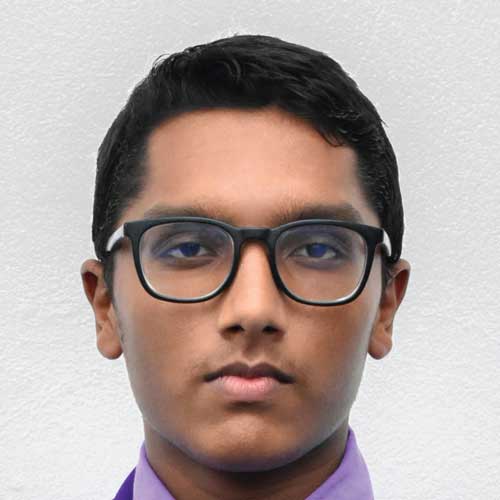

Compiled by Nicola Jayasundera
SRI LANKA’S DIVERSITY GAP
Nadeem Shabeer rues the ethnic and religious differences that divide us
Q: What’s the good, the bad and the ugly in SriLanka today?
A: The good is Sri Lanka’s rich cultural heritage that’s filled with ancient cities, temples and historical sites, which showcase its long history and diverse traditions.
Meanwhile, the bad is seen in the corruption that exists in almost all aspects of the state machinery. Corruption presents a significant challenge to good governance since it is impacting various sectors, and hindering the progress and development of the country.
And the ugly comprises the many incidents of religious and communal intolerance that have taken place in and around the island, and resulted in violence and social unrest. Such problems continue to hold us back from being united as a single nation under one flag.
Q: And what are the other challenges facing our country at this time?
A: Some of the other challenges include the need to enhance economic development, upgrade our transportation network and public services, and source investments in order to build sustainable infrastructure.
These improvements are necessary to support economic growth, enhance connectivity and improve the quality of life for all Sri Lankans.
Furthermore, it’s important to adopt good governance principles and eliminate corruption, by strengthening government institutions and promoting transparency to ensure effective public administration. This will also go a long way towards earning the trust of the people.
Q: Do you believe that all Sri Lankans will be united one day – and if so, how and why?
A: The diversity gap is what separates the people of this country.
Ethnic and religious differences keep people from realising that only through unity can our country develop and move forward. I hope that this realisation comes sooner than later.
 Q: Where do you see yourself in 10 years’ time?
Q: Where do you see yourself in 10 years’ time?
A: I see myself furthering my knowledge so I can engage in stable employment and also feed my curiosity in the sciences.
I’m drawn towards medicine and hope that in the future, my research and work will impact both Sri Lankans and the rest of the world.
Q: And where do you see Sri Lanka in a decade or so from today?
A: Sri Lanka has so much potential to further develop its economy and diversify industry.
This will lead to increased job opportunities, improved infrastructure and a higher standard of living for the people. And with its natural beauty, cultural heritage and hospitality, the country can continue to attract tourists from around the world.
However, I don’t see this happening due to the rampant corruption in the island. Until this issue is addressed and eliminated, we won’t be able to progress as a nation.
Q: Who is responsible for climate change and global warming, in your view – and what must be done about these issues?
A: It is unfair to attribute responsibility to any single individual as we are all contributors to and responsible for global warming and climate change.
What’s necessary now is that we develop and implement sustainable strategies and policies that can mitigate the impact of climate change. Building climate resilient infrastructure, implementing effective water management practices, protecting vulnerable ecosystems and so on are crucial if we want our planet to be habitable – not only for us but future generations as well.
Q: How do you view the growing importance of social media today?
A: While I do realise that there are various problems and issues associated with social media, I strongly believe that the pros outweigh the cons since it is vital in this day and age.
Social media provides users with a platform that facilitates instant communication, and enables people to connect across the world to express their thoughts, opinions and concerns. It also lends a voice to the voiceless, and prompts discussions on social, political and environmental issues.
Q: And finally, where do you see the world in 10 years’ time?
A: I believe that in 10 years’ time, there will be more sustainable efforts to combat climate change and transition to a low carbon economy through improved global cooperation, increased investments in renewable energy and the adoption of sustainable practices.
This content is available for subscribers only.





